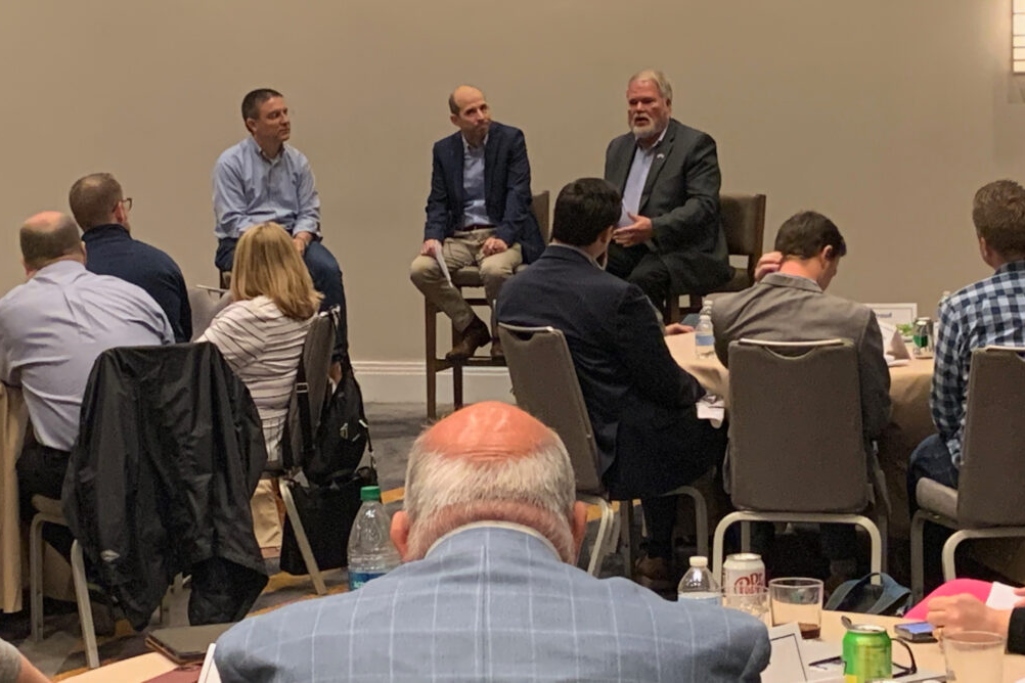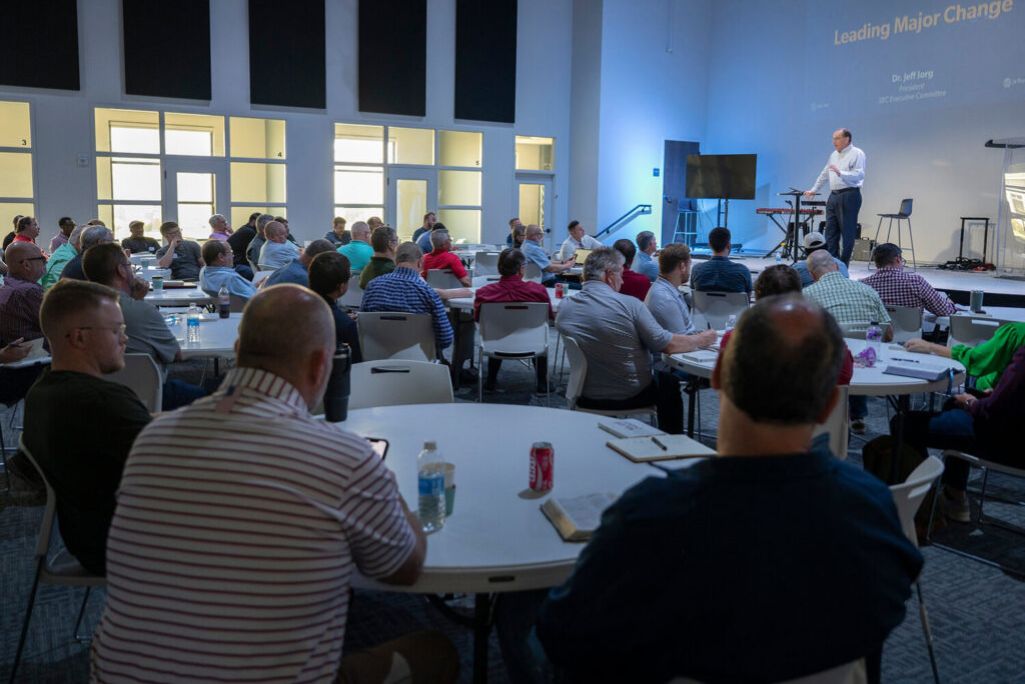
Craig Carlisle, foreground, listens during a panel discussion March 28 hosted by the Ethics and Religious Liberty Commission. Carlisle serves as director of missions for the Etowah Baptist Association and chairman for the Sexual Abuse Advisory Task Force with the Alabama Baptist State Board of Missions.
ATLANTA (BP) — State convention representatives from around the country met with members of the Abuse Reform Implementation Task Force (ARITF) March 28 to share the status of their state convention’s response to sexual abuse prevention reforms and learn from others.
The meeting was held at the Atlanta Airport Marriott Gateway near Hartsfield-Jackson International Airport.
A majority of Southern Baptist state conventions were already active as of late last year in taking measures to prevent sexual abuse and care for survivors. Currently, each one “has some kind of task force or team to work on these issues,” ARITF chair Marshall Blalock told Baptist Press, with 24 of them attending March 28.
Participants shared how they established their groups, the successes and the challenges. Differences included the time frame, with some only having been formed recently, to the number of members serving on each task force.
“I was extremely pleased with the meeting,” said ARITF co-chair Mike Keahbone. “It was a refreshing reminder that a vast majority of our churches are passionately unified in hating sexual abuse and doing their best to prevent it. I also felt very encouraged by the support of those in attendance.”
Keahbone pointed to a spirit of unity he observed in promoting sexual abuse prevention and survivor care while being “intentional in fostering collaboration.”
A lunchtime panel hosted by the Ethics and Religious Liberty Commission (ERLC) discussed sexual abuse and legislative issues. ERLC vice president and chief of staff Miles Mullin led the panel and was joined by ARITF member Brad Eubank (also the chairman of Mississippi’s task force) and Tony Beam, director of church and community engagement for North Greenville University.
Craig Carlisle has been active over the last year in his roles as director of missions for Etowah Baptist Association (EBA) and chair for the Sexual Abuse Advisory Task Force in Alabama.
He has spoken to fellow association leaders at a statewide gathering, and the EBA hosted a symposium on sexual abuse prevention. Before completing his drive home to Gadsden, Ala., Tuesday night, Carlisle first stopped in Cleburne County to talk about the subject in a scheduled meeting with local pastors.
He told BP that Tuesday made him realize that there was much more to do.
“It was encouraging to see the activity of the other conventions,” he said. “Alabama was ahead of the game initially. But I was blown away by how much others are doing and realized we have some catching up to do.”
Those changes include providing more printed resources. There will also be a booth at the state convention’s annual meeting this fall.
Carlisle said he was reminded communicating on the local level is crucial.
“Smaller churches aren’t going to respond as well unless it’s a local presentation,” he said. “I’ve got 55 bivocational pastors in my association. They’re probably not going to go to the ARITF’s website for information or maybe even the state convention. But they’ll listen to someone they know.”
Keahbone said the meeting matched what he and other ARITF members have experienced in similar discussions with their own local associational leaders and pastors.
“They’re taking this seriously and doing a good job in equipping their churches,” Keahbone said. “Their attendance and implementation of their ideas and plans spoke volumes.”
Carlisle said meetings like the one in Atlanta can help task forces everywhere—regardless of their starting point or stature—do more to protect the vulnerable.
“The materials shared are transferable,” he said. “I can take what Oklahoma or North Carolina did and make it Alabama-friendly. We’re not having to start from scratch. That kind of camaraderie shows that we are working together.”
(EDITOR’S NOTE – Scott Barkley is national correspondent for Baptist Press.)


